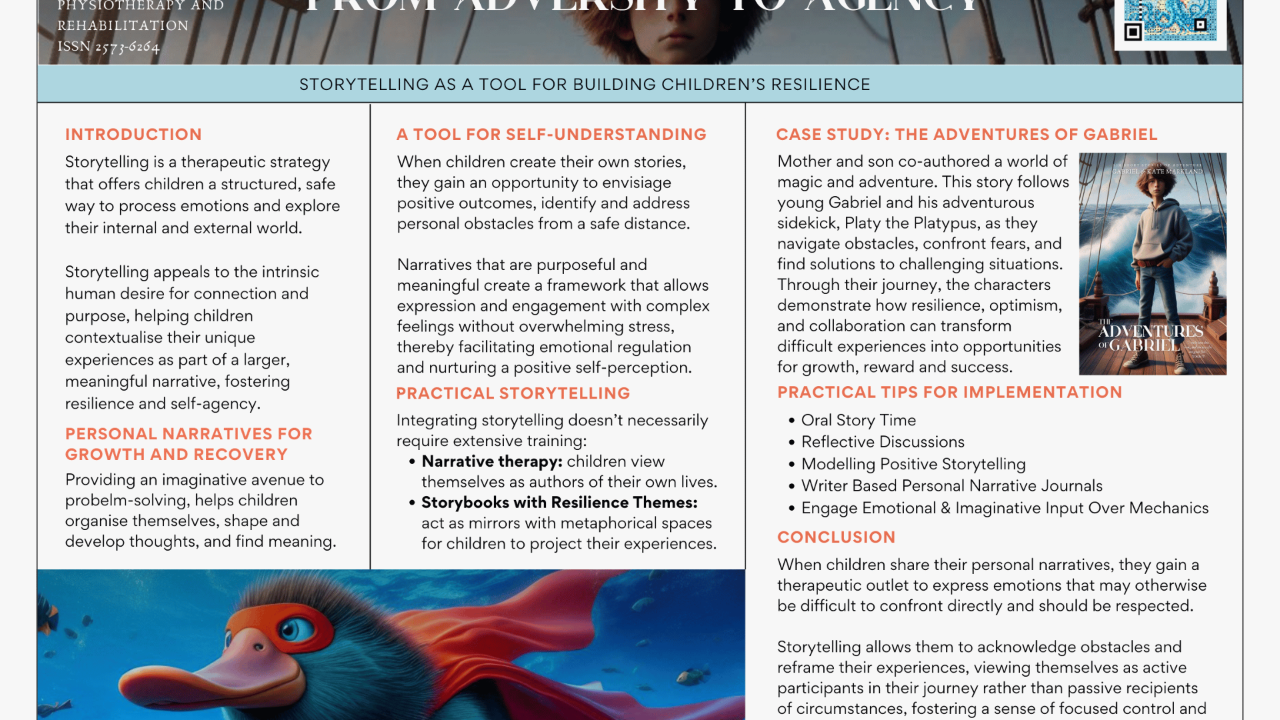Presenting at the British Psychological Society on Storytelling
Jan 10, 2025
We're excited to share that Kate Markland recently presented her work at the British Psychological Society's Division of Educational and Child Psychology (DECP) Conference, showcasing her powerful approach to helping children build resilience through storytelling.
Her poster, titled "From Adversity to Agency: Storytelling as a Tool for Building Children’s Resilience," highlighted how narrative creation empowers children to process experiences, regulate emotions, and develop a sense of control over their own lives.
Why Storytelling Matters in Educational Psychology
When children create their own stories, they begin to see themselves as capable of envisioning positive outcomes, tackling challenges, and growing through adversity. Storytelling gives them a structured yet imaginative space to:
🔹 Engage with complex feelings from a safe distance
🔹 Build emotional regulation and resilience
🔹 Develop a positive self-perception
As Kate shared at the conference, personal narratives allow children to move from feeling like passive recipients of their circumstances to active participants in their own journey—a fundamental shift that underpins long-term resilience.
Practical Storytelling Strategies That Don’t Require Specialist Training
One of the standout messages from Kate’s presentation was that you don’t need to be a therapist to implement storytelling techniques in education or care settings. Her poster offered simple, powerful methods for embedding storytelling into everyday practice:
-
Narrative Therapy Principles – Encourage children to view themselves as the authors of their own lives.
-
Storybooks with Resilience Themes – Use metaphor and character journeys to help children reflect and project safely.
-
Oral Story Time & Reflective Discussions – Regular storytelling moments followed by guided conversations to explore emotions and meaning.
-
Writer-Based Narrative Journals – Let children write or draw freely, focusing on imagination and self-expression over grammar or structure.
-
Modelling Positive Storytelling – Adults sharing their own stories of growth and problem-solving as examples of resilience.
These tools help children organise their thoughts, develop empathy, and find meaning—even in moments of challenge.
Case Study Highlight: The Adventures of Gabriel
Kate’s presentation also spotlighted her collaborative project with her son, Gabriel, the co-author of The Adventures of Gabriel. During a period of physical separation, Gabriel and Kate maintained their bond by co-creating a magical world where characters overcame fear and uncertainty with resilience, creativity, and collaboration.
This process was more than just co-writing a book—it was therapeutic, empowering, and deeply connecting. Gabriel’s voice was heard, honoured, and celebrated. And now, his story is inspiring children across the UK and beyond to tell their own.
Key Takeaways from the Poster Presentation
-
Storytelling offers a safe and powerful alternative to over-medicalisation, helping children process emotions without pathologising them.
-
Personal narratives build emotional resilience, enhance autonomy, and support mental well-being in a developmentally appropriate way.
-
Storytelling is a universal tool that can be easily adapted for use in schools, homes, and healthcare settings.
🌍 The Bigger Picture
Kate’s work continues to gain international recognition for its practical application and deep emotional impact. In a time when children’s mental health challenges are on the rise, storytelling is a low-barrier, high-impact solution that nurtures healing, learning, and self-belief.
Because every child deserves to be the hero of their own story.
To learn more about Kate’s storytelling workshops, keynotes, or The Adventures of Gabriel, get in touch.
